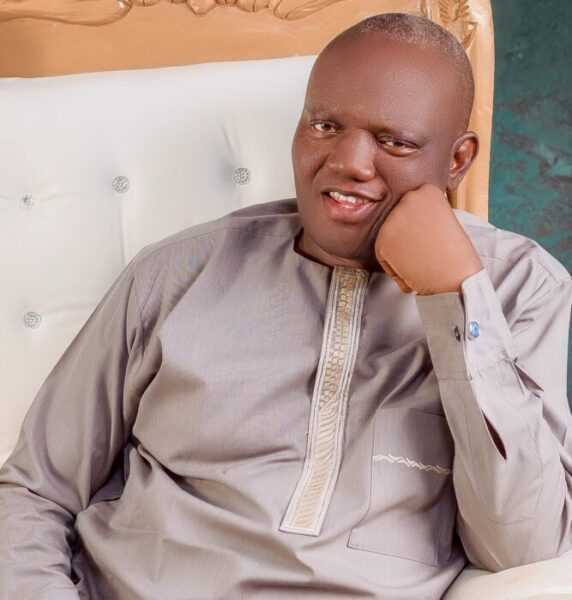Forgotten Dairies
Yoruba: From Ancestors to Architects (2) -By Abiodun KOMOLAFE
The governments of the Western Region must urgently revitalize the integrated rural development programme of the UPN. Doing so would revitalize rural economies, create new jobs across the value chain, and trigger a competitive, export-oriented economy. This strategy would capitalize on Yorubaland’s geographical advantage – its access to the sea – and position the region at the forefront of African economic integration, a crucial benefit in today’s era of escalating trade wars. This is a critical juncture for the Yoruba people; it is time to rethink and reboot our approach.

Uneven wealth distribution inevitably leads to social catastrophe. The discernible difference between population size and economic might highlights this issue. Norway and Switzerland, with small populations of five and seven million, are among the world’s richest nations. This begs the question: Given its vast intellectual and human capital, why does a historically blessed and resourceful region like Yorubaland continue to struggle with development?
For the Yorubas therefore, the journey from a legacy of ancestors to becoming the architects of our own future is not a choice between the past and the future, but a synthesis of both. What’s more? The future is not something that passively happens; it must be deliberately created. In other words, becoming the architects of this future means embracing modern knowledge and technology while simultaneously preserving cultural values.
To do this, a necessary and urgent step is the establishment of institutions like the Development Agenda for Western Nigeria (DAWN) and other investment banks. Had these institutions been established at least two decades ago, they would have by now amassed a paid-up capital of no less than N800 billion, sourced from domestic investors, the diaspora, and international financing institutions.
The recent establishment of the South West Development Commission (SWDC) is a crucial step forward for regional progress. While the Tinubu-led government deserves commendation for this initiative, the SWDC must, above all else, mobilize and secure sustained development funds for building critical infrastructure through public-private partnerships. It must also forge a dedicated unit to empower and support small- and medium-sized enterprises (SMSEs) across the region.
We’ve already seen how world-class research institutions have been a significant factor in propelling the United States subnational, California, to become the world’s fourth-largest economy. California’s Silicon Valley also grew from a symbiotic relationship between Stanford University and the surrounding ecosystem. Similarly, the State of Massachusetts is leveraging its elite institutions like Harvard and the Massachusetts Institute of Technology (MIT) to gain a strong competitive edge. It is imperative that Yorubaland adopts a similar strategy to secure its economic future.
For instance, a collective effort should be made over the next fifteen years to transform the University of Ibadan (UI) into a world-class institution, ranking among the top 100 universities globally. This would not only create a continuous base for world-class human capital development but also provide the essential research needed to give local industries a crucial competitive edge.
Yorubaland must abandon its current partisan politics – devoid of ideological foundation – and instead focus on a twenty-year plan to build human capital. The Yoruba nation must unite around a new democratic agreement that rises above the partisan squabbles that have failed to produce significant progress since the demise of the Second Republic and earlier democratic experiments by progressive parties like the Action Group (AG) and Unity Party of Nigeria (UPN).
The governments of the Western Region must urgently revitalize the integrated rural development programme of the UPN. Doing so would revitalize rural economies, create new jobs across the value chain, and trigger a competitive, export-oriented economy. This strategy would capitalize on Yorubaland’s geographical advantage – its access to the sea – and position the region at the forefront of African economic integration, a crucial benefit in today’s era of escalating trade wars. This is a critical juncture for the Yoruba people; it is time to rethink and reboot our approach.
Lest we forget, Southwest legislators have a historical blueprint for collaboration that they should urgently revisit. In the Second Republic, leaders from the UPN and NPN, and from the AG and NCNC, established a powerful precedent by regularly meeting to foster regional unity. These leaders were dedicated to the vital interests of the Southwest, never allowing partisan politics to overshadow their duty.
This historical model provides a clear mandate for today’s representatives. All Yoruba legislators should form a caucus to create a common agenda for the region. The primary purpose of such a caucus would be to transcend the narrow pursuit of personal gain and forge the cross-zonal alliances needed to pass critical legislation.
As a nationality, the choice is pleasantly ours!
May the Lamb of God, who takes away the sin of the world, grant us peace in Nigeria!
●Concluded.
*KOMOLAFE wrote from Ijebu-Jesa, Osun State, Nigeria (ijebujesa@yahoo.co.uk; 08033614419 – SMS only),









